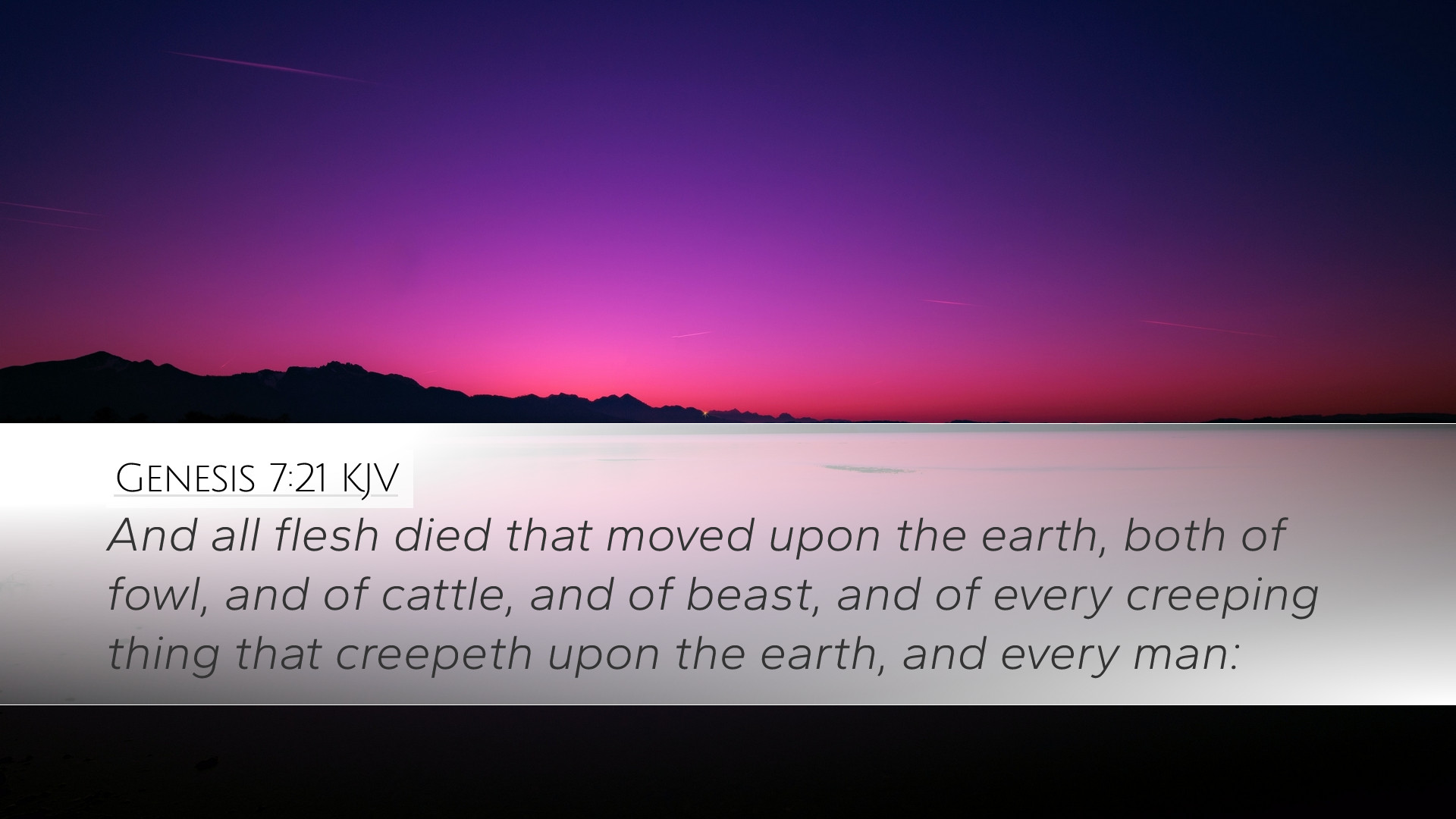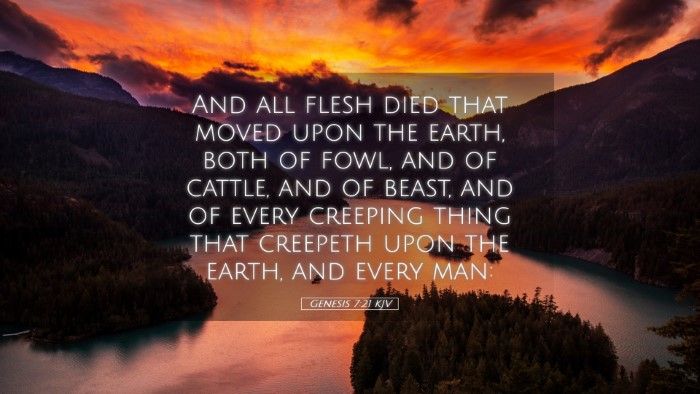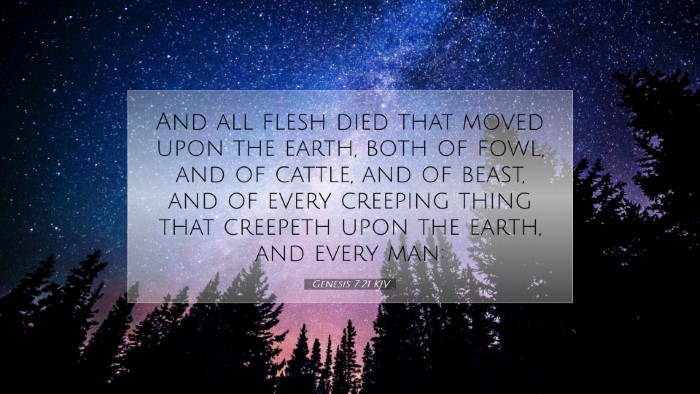Commentary on Genesis 7:21
Genesis 7:21 states: “And all flesh died that moved upon the earth, both of fowl, and of cattle, and of beast, and of every creeping thing that creepeth upon the earth, and every man:” This passage is part of the narrative describing the Great Flood, a significant event in biblical history that illustrates God's judgment and mercy. Below is a synthesized commentary based on insights from various public domain sources.
Contextual Analysis
The context of this verse is crucial to understanding its meaning. In the previous chapters, God sees the wickedness of humanity and decides to cleanse the earth through a flood, saving only Noah and his family. This judgment emphasizes God’s holiness and the consequences of human sin.
The Nature of Judgment
Matthew Henry emphasizes the totality of the judgment depicted in this verse. He notes that the phrase “all flesh died” signifies the breadth of the destruction brought forth by the flood—a divine response to pervasive corruption. Henry points out that this judgment was not arbitrary; rather, it was God’s righteous decree against sin.
God’s Sovereignty
Albert Barnes underscores the sovereignty of God in orchestrating this catastrophe. The demise of every living creature, as the verse outlines, affirms the idea that God controls all life and is sovereign over creation. The Flood serves not only as a punishment but also as a demonstration of divine authority—nothing escapes His will.
Symbolism and Theological Implications
Adam Clarke provides a nuanced understanding of the symbolism behind the flood. He suggests that the death of all creatures symbolizes the need for spiritual renewal. The eradication of life reflects the need for humanity to turn away from sin and idolatry—a theme prevalent throughout scripture.
Lessons for Humanity
- Sin’s Consequences: This account serves as a sobering reminder of the serious nature of sin and the consequences that follow. It invites readers to reflect on personal accountability and divine judgment.
- Hope Amidst Judgment: Despite the destruction, the narrative also hints at restoration. Noah’s family is preserved, signifying God’s commitment to humanity and His plan for redemption.
- Call to Repentance: The flood narrative calls for a response of repentance from God's people. The totality of the judgment serves as a stark warning against complacency in spiritual matters.
The Role of Noah
Henry highlights the significance of Noah’s role as a faithful servant. While all others perished, Noah's obedience preserved him and his family. This underscores the theme of righteousness amidst widespread corruption. In contrast, Clarke notes that Noah's faithfulness is a prototype of the redemptive work that would culminate in Christ, suggesting that faith serves as a safeguard against judgment.
Theological Reflections
The death of every living thing signifies more than physical demise; it also symbolizes spiritual death that sin brings. Barnes reflects on the nature of sin that ultimately leads to death, echoing Pauline themes found in the New Testament where the wages of sin is death (Romans 6:23). This calls scholars and theologians to deeper inquiry into the intersection of divine judgment and grace.
Application for Today’s Believers
For pastors and leaders, this text serves as a reminder to lead congregations towards righteous living. The verse prompts a deep examination of personal and corporate sin, as well as an encouragement to engage in faithful living that aligns with God's will.
Moreover, it challenges believers to consider the realities of divine judgment and emphasizes the essential nature of repentance and renewal.
Conclusion
Genesis 7:21 is a pivotal verse within the narrative of the Flood that encapsulates themes of judgment, sovereignty, and the hope of salvation through obedience. By synthesizing insights from historical commentaries, we recognize the lasting implications of this passage for contemporary faith practices.


